I don't read many horror novels. Not because I'm a literary snob. I'm no genre elitist. The reason I don't read horror is because I am a huge wuss. Anything I read takes on sinister dimensions after sundown, and then there I am, two o'clock in the morning, eyes WIDE open, pulse cranking, wondering why I do that to myself.
Ages ago, my sister and I would crawl under my grandmother's dining table and pretend to fall asleep while the adults talked. We listened to the family stories the adults would never repeat in front of us - the much debated murder/self-defense/justifiable homicide, the prisoners in the insane asylum, the reluctant bride who was forced to give up table-top dancing in the local tavern.... You know, the good stuff.
My sister would remind me to keep quiet by putting her finger to her lips. As the night wore on, the adults would tell creepy stories of the frovoliki (you would call them vampires), in a classic game of storytelling one-upsmanship. I'd want to leave, but crawling out from under the table would have been an admission of our guilt. Besides, after hearing a few of those stories, closing my eyes in our dark bedroom in the attic of my grandparents' ancient farmhouse was out of the question. My sister must have felt the same way, because she'd clutch my hands, and we'd stare into each other's wide eyes. If someone would have lifted up the long lace tablecloth and said "Boo!" we would have jumped out of our skins.
Those stories, no matter how fantasic, were related as personal histories. If it didn't happen directly to the storyteller, then it was about his mother, cousin, or brother. Every hair on my arms would rise and I would listen carefully to the house beyond the dining room, half expecting to hear the voice of a recently deceased relative calling for me. By the time I got carried upstairs, I was a wreck. If I got lucky, my parents would let me sleep with them, or my sister would slip into the bed with me after the adults closed the door. If not, I'd spend the night with my back pressed so tight to the mattress that it was amazing my skin didn't bond to it. I'd keep the covers tight around my neck, my feet away from the edge of the bed, and I'd hold my breath until the last chime of midnight faded.
As frightened as I was, the next night I'd crawl under the table again to listen. Sometimes, the adults lapsed into Romanian and I really would fall asleep, lulled by the musical language I didn't understand as it was spoken in the deep, rumbling voices of the old world men.
Even though the tales terrified me, there was something comforting about them too, because they always ended with a mere human doing something simple with tools close at hand to thwart the seemingly unstoppable monster. Besides, all those vampires were back in Galsa, not in the US. In the US, the way I understood it, the dead stayed buried. Bubskah once said about a relative, "Well, she's gone, and she isn't coming back." Imagine my relief.
The frovoliki weren't like Dracula. (Don't get me started on the special place Judzja reserved in hell for Braham Stoker.) They were always family or close friends who had gone feral. Sometimes they had died (or were considered "dead" to the family), but most of the time they simply mysteriously vanished (and were presumed dead) and then turned up again in a wild state. Those prodigal sons of the dammed tried then to entice family members into leaving the safety of the home- not a good idea if the family stories were to be believed, or into allowing the frovoliki into the house - a worse idea.
That makes sense, if you think of vampirism as an allegory for disease, and the threshold of the house as a symbolic (and literal) barrier against illness. One member of your family, who had been away and probably in contact with strangers, could infect everyone under your roof. The real monster was carried in the blood, the lungs, or in the bite of fleas, but the monster people saw was the returned-from-the-dead family member.
I think the reason why the frovoliki stayed in Galsa and didn't travel with my family to the US was because the frovoliki would have been so out of place here. Modern life wouldn't have tolerated them. Science, medicine, and electric lighting have taken the micky out of most monsters. Now in books and movies they're heroes or misunderstood defenders of mankind. They had to change. But they aren't monstrous anymore.
If I were to write a horror story, I think I would first take a good look at the world I built as a setting. I'd need to figure out the reasonable fears of the society. By reasonable fears, I mean that it was reasonable for my great grandfather to worry about being buried alive, but I'm comfortable with the idea that medical science will pronounce me truly dead before my body is ashed. It is reasonable for me to fear being hit by a car or being electrocuted by a downed powerline. In the 1800s, anyone who worried about that would have been considered mad. When Mary Shelley wrote Frankenstein, a body cobbled together from parts of other bodies was horrific. Now implants and donated organs are considered a miracle of modern science and a boon to mankind. For something to be horror, it has to horrify the characters and their society.
Monsters reflect the psychological needs of the society that "creates" them. They are a release valve, a way to talk about forbidden desires and taboo subjects. The words coded into the stories of some monsters is lost to us because we don't understand the society that spawned them, or over time the tale was poorly translated and sanitized so that the monster is no longer what it once was. A monster has to fill a need in the society it terrifies. They have to fit together. Otherwise, the story won't work.
My last step would be to expose the underbelly of my society. I'd find out what agents of change would rock my society to its core. I'd have to know what government or religion repressed so harshly that it seethed under the surface. The best possible horror for my society would probably be found in its darkest reflection. "Here, There Be Monsters." Indeed.
Tuesday, January 24, 2006
Subscribe to:
Post Comments (Atom)










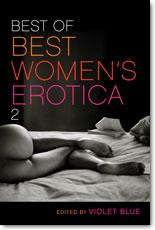

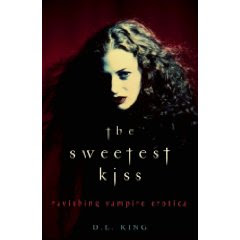


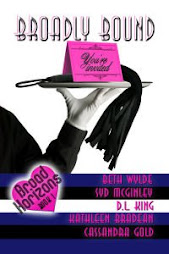.jpg)
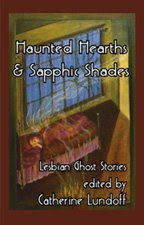

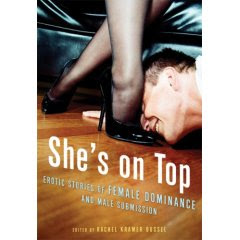





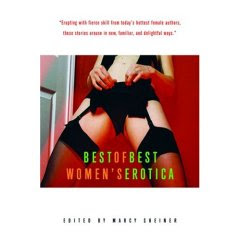


No comments:
Post a Comment